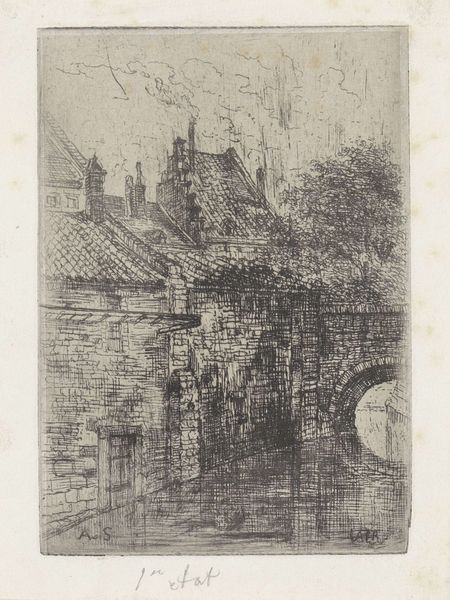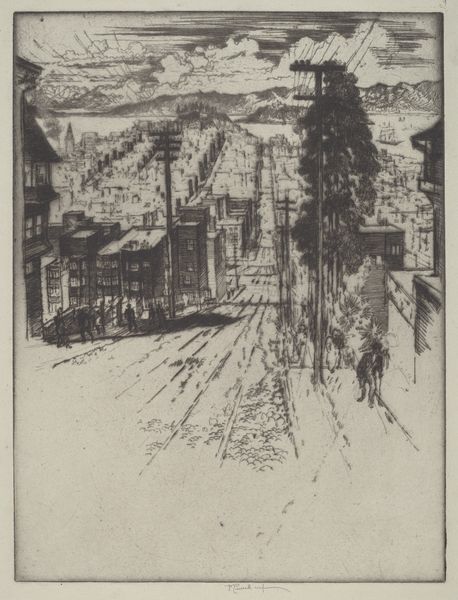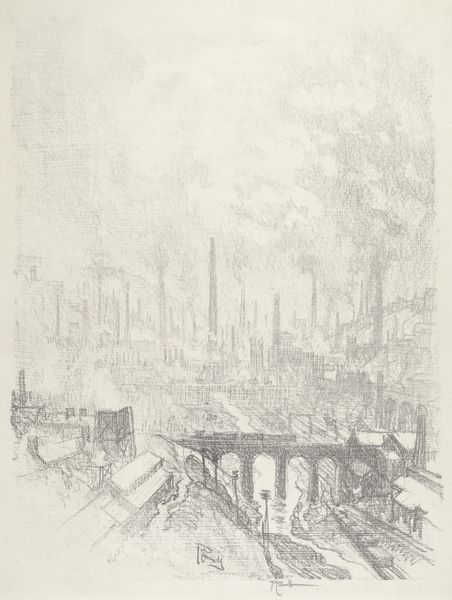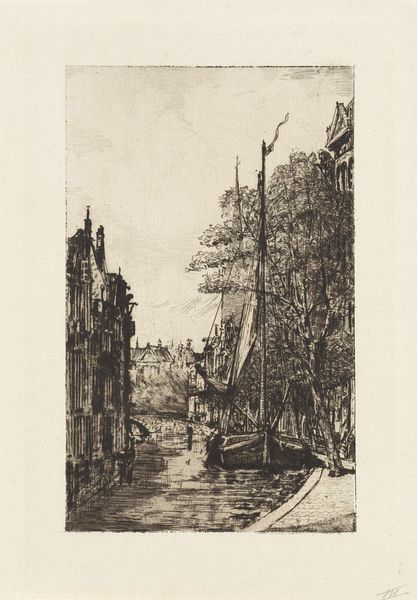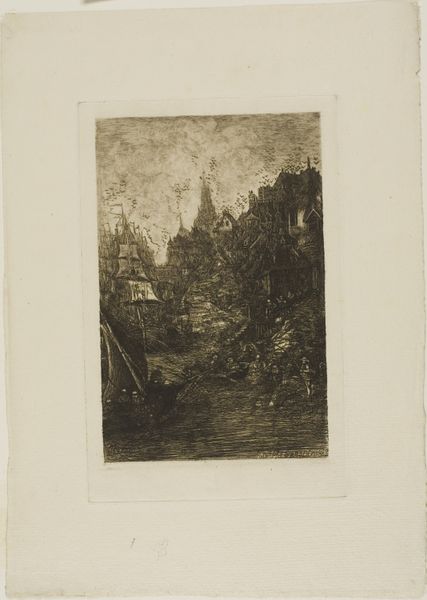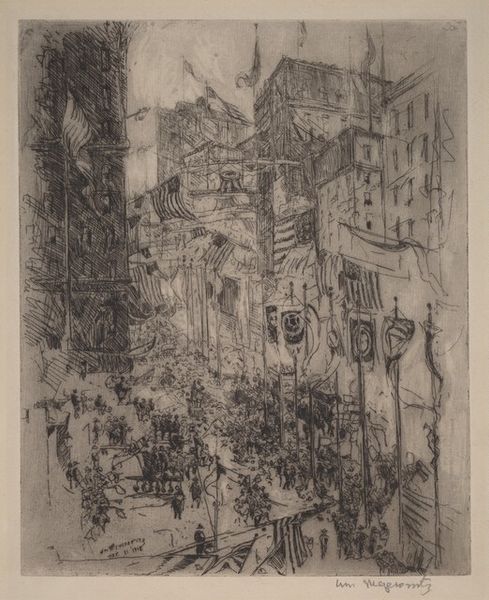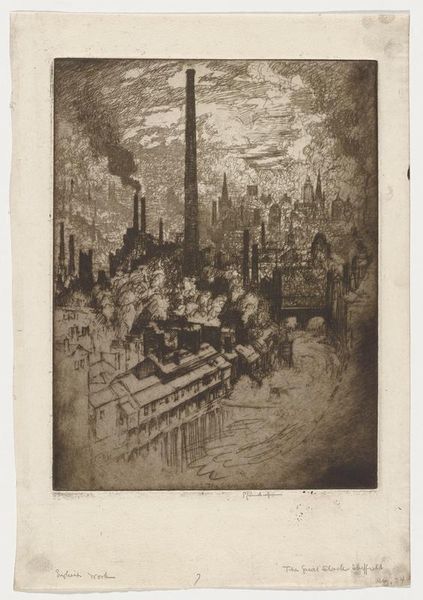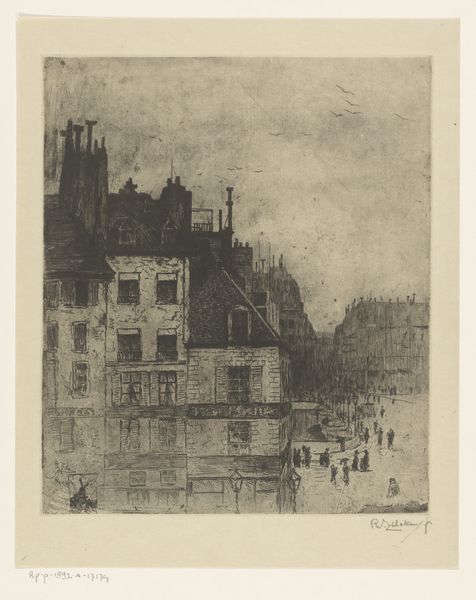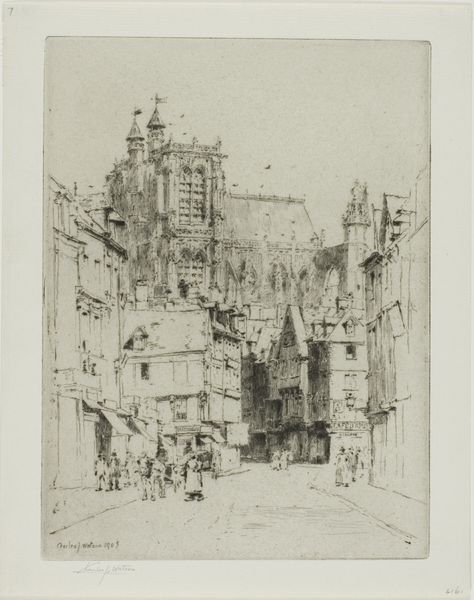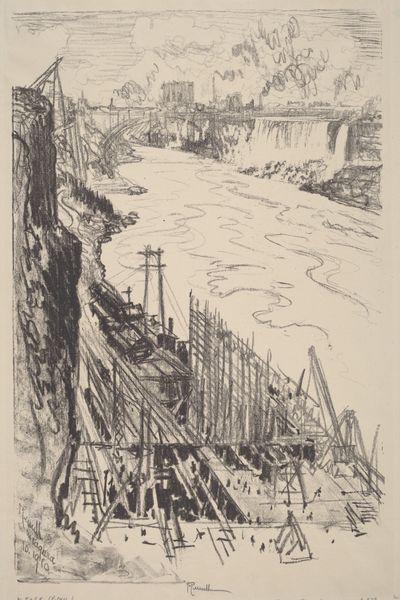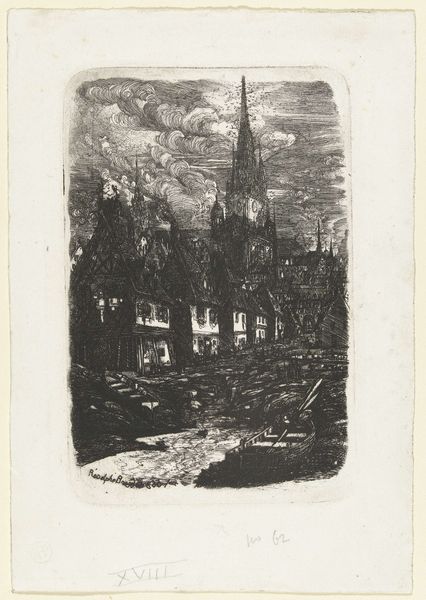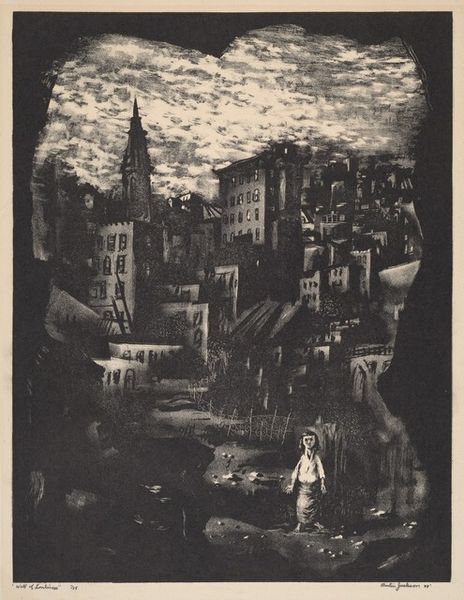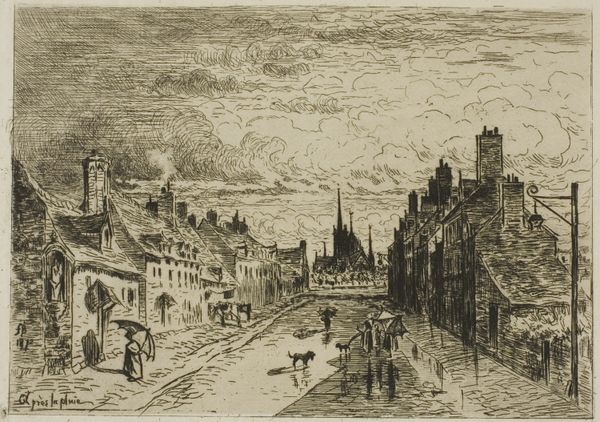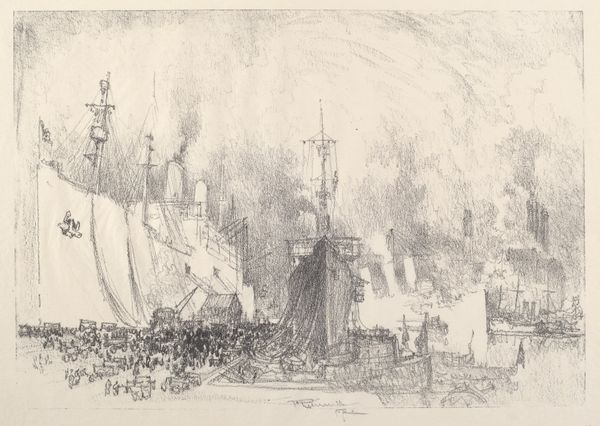
drawing, print, pencil
#
drawing
# print
#
pencil drawing
#
pencil
#
cityscape
#
modernism
Copyright: National Gallery of Art: CC0 1.0
Curator: This is Joseph Pennell's "The Great Chimney, the Motor Park," created around 1916. The piece employs pencil on paper in a detailed print or drawing. Editor: The first thing I notice is the towering chimney, spewing smoke—it completely dominates the cityscape and evokes a sense of industry but also unease. It’s quite grim, really. Curator: Pennell was known for his industrial scenes, often portraying factories and urban environments. It's important to view his work within the context of the rise of industrialism, and its impact during the early 20th century, when artistic approaches such as Modernism grew. There's definitely an element of commentary present. Editor: Absolutely. Look at the dense network of lines used to depict the buildings and smoke. Pencil was a very democratic material, perfect for documenting the relentless growth that drastically reshaped labor conditions and patterns of consumption. The reflections on the water almost seem like another world existing just beneath. Curator: He made this artwork at a time of considerable social upheaval and transformation. This landscape, despite lacking any human figure, it speaks volumes about that era, echoing the impact that it made on society. Pennell had an interest in technological advancement; however, it’s not depicted with mere celebration; there is an unsettling nature in its relentless, overpowering presentation. Editor: You can see it even in the sketchiness of the rendering. The hurried lines convey a frenetic pace mirroring the production, like a factory line spewing product out. It almost feels unsustainable. How much further can it grow? Curator: Indeed, that's what makes this artwork so compelling, even a century later. It captures the spirit of a transformative period, not only the marvel but the underlying unease. Pennell's skill lay in distilling these complicated social conditions in simple images. Editor: Seeing the marks, understanding the simple materials utilized, we can perceive Pennell documenting our modern relationship with resources, questioning how production truly transforms human existence. I certainly found more food for thought than I initially expected here. Curator: I concur. I've reconsidered some perspectives here, myself, thanks to that materialist reading of the setting in its own historical era.
Comments
No comments
Be the first to comment and join the conversation on the ultimate creative platform.
